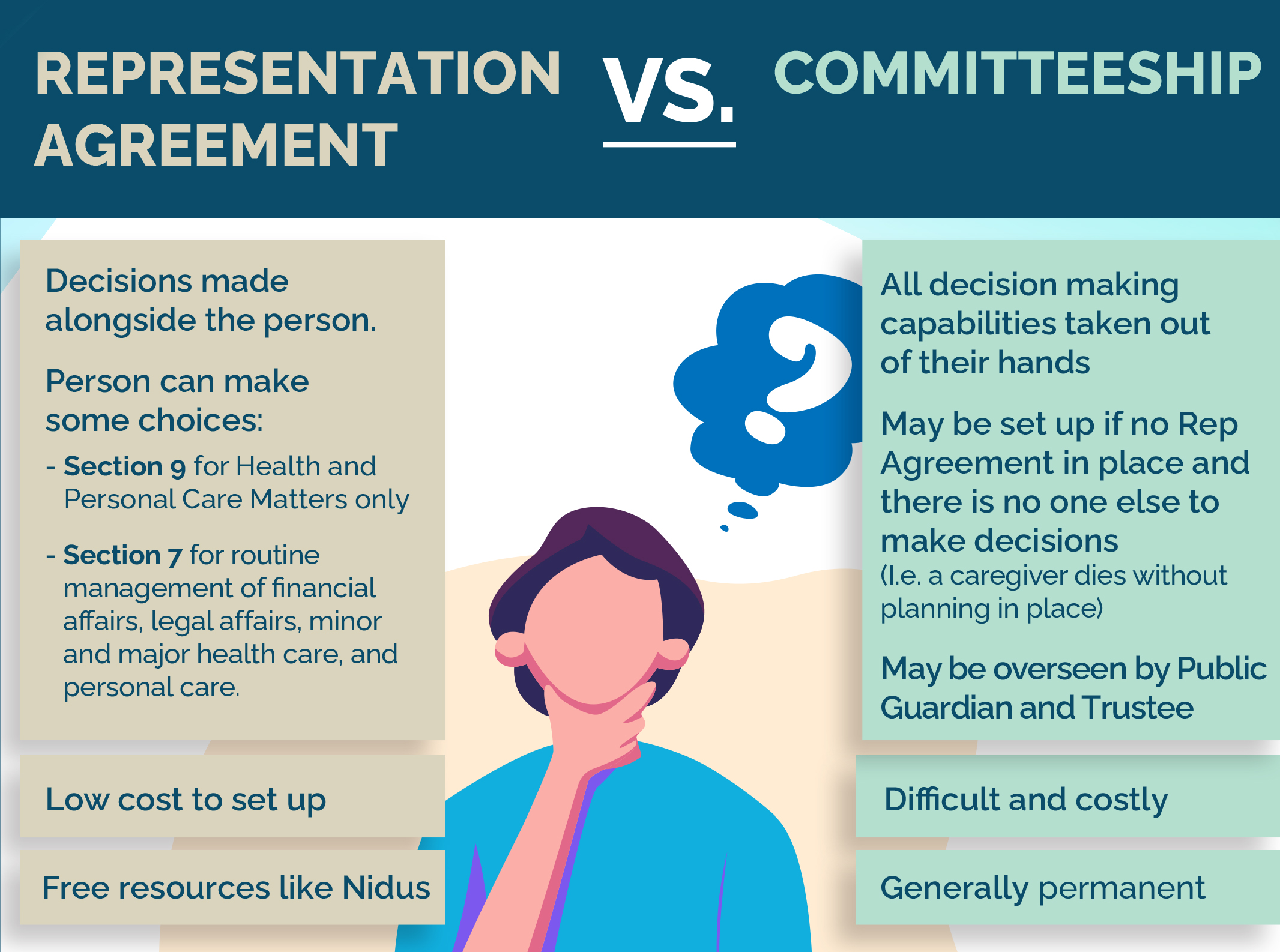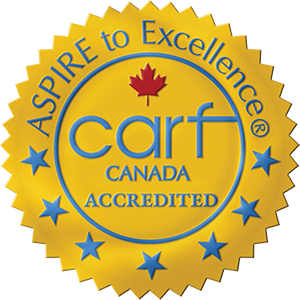Guardianship and Representation Agreements
Guardianship and Representation Agreements are important tools to ensure that the needs and preferences of your loved one are respected, and their well-being is upheld.
These legal documents offer a structured way to plan for the future, ensuring that the right people are in place to advocate for and manage the care of your child or family member with a disability.
Types of Guardianship
- You identify someone you trust to help you make decisions. This can be in the form of a Representation Agreement, Power of Attorney, or Advance Directive.
- Committee of a person or estate which gives more decision making authority to the guardian. It is only used when Representations Agreements are not sufficient to address the adult’s needs.
What is a Representation Agreement?
A legal document that allows adults to name another person to manage their finances or make health care decisions if they cannot do so on their own. There are two types of Representation Agreements:
- Section 9 for Health and Personal Care Matters only
- Section 7 for routine management of financial affairs, legal affairs, minor and major health care, and personal care. It is used when a person’s capacity to “understand” is in question.

How to Establish a Representation Agreement
Visit www.nidus.ca
What is Committeeship/Adult Guardianship?
It is when an adult is declared incapable. A Person or persons, a Trust company, or the Public Guardian and Trustee of BC take over to make decisions regarding finance, health, personal care.
Committeeship is generally seen as a last resort after Representation Agreements have been explored. It takes all decision making power out of the hands of the person and is lifelong. It is also very costly to set up.


Watch & Learn

By Family Support Institute of BC

